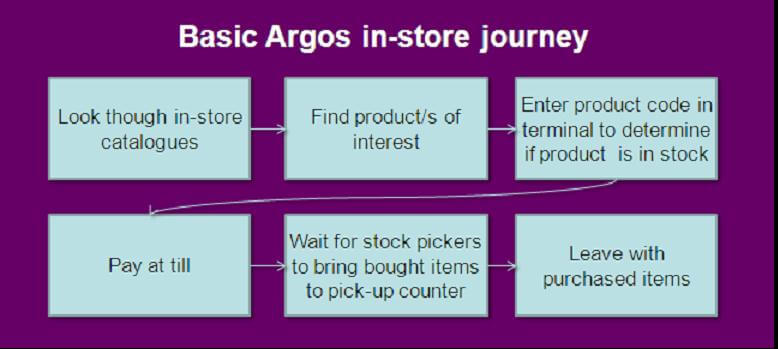
I was recently interviewed on LBC 97.3 talk radio in London on the news that Argos would close 75 of its stores. Argos is a multi-channel retailer that sells general merchandise and products for the home. They have sales of about £4.3 billion ($6.9 billion) and employ about 33,000 people. Most consumers know them through the retail network of about 750 stores as a catalogue merchant. Their in-store experience might be summarised as follows:

In other words, you don’t get to see the actual product you are purchasing before you buy it. So, the in-store experience is many respects close to an online shopping experience. You only get to physically handle the product once you have bought the product from descriptions and pictures as listed in a catalogue.
LBC 97.3 radio Host Nick Ferrari’s take on the Argos news of the store closings was that it was surely a sign of a problem in their in-store experience. I did not think so and saw it as just a reasonable and to my mind correct strategic reaction to movement in consumer trends. Listen to the 4min interview.
As I thought about that interview, it occurred to me that there is often a bandwagon or kneejerk reaction to interpret business contractions or strategic shifts as a negative. An appropriate customer experience does not eliminate the business cycle. It simply lessens the negative effects and heightens the upside. In Argos’s case, it seems they are paying attention to customer trends and staying on par with changing customer shopping behaviour.
| Qaalfa Dibeehi is Chief Operating and Consulting Officer at of Beyond Philosophy one of the world’s first organizations devoted to customer experience. Qaalfa is an international co-author of Customer Experience: Future Trends and Insights. Beyond Philosophy provide consulting, specialised research & training from offices in Atlanta, Georgia and London, England. Follow Qaalfa Dibeehi on Twitter @Qaalfa_BeyondP |


